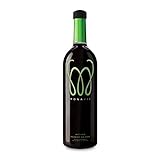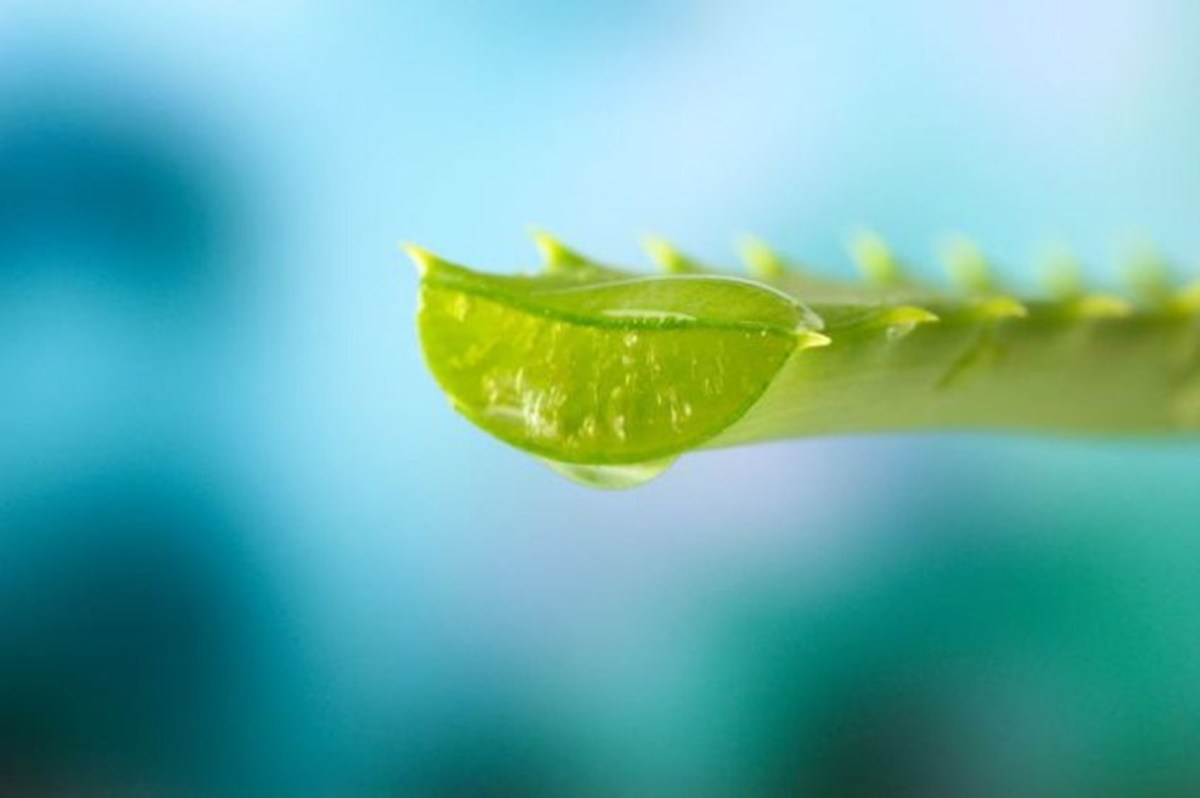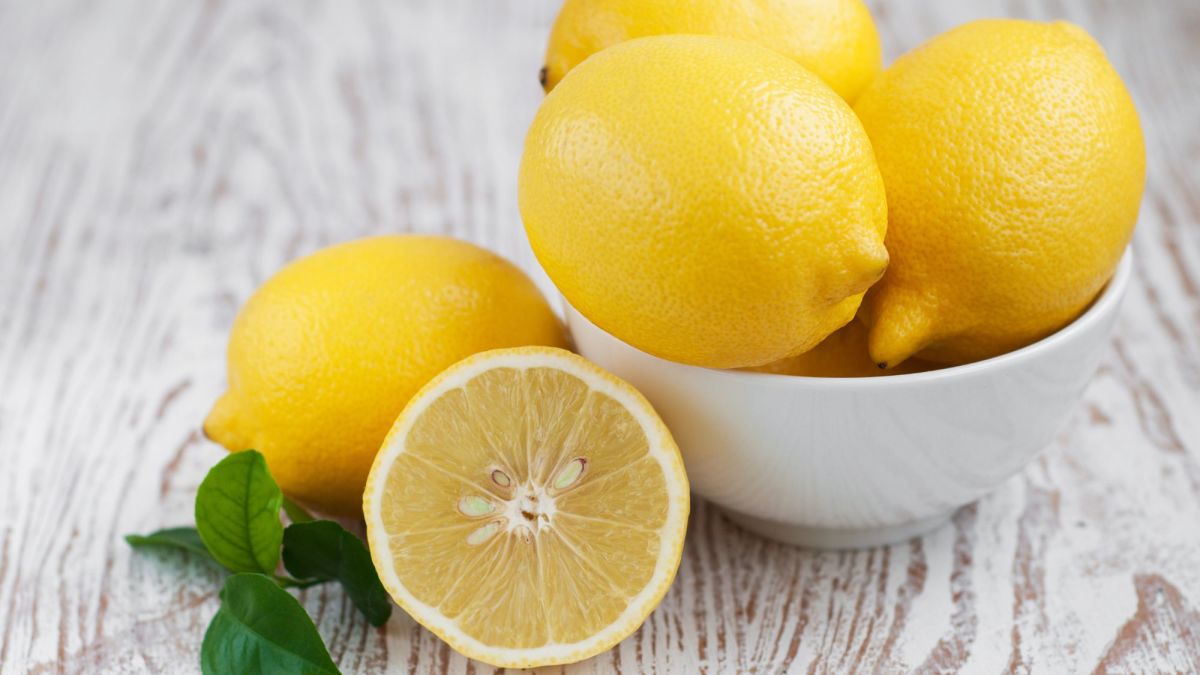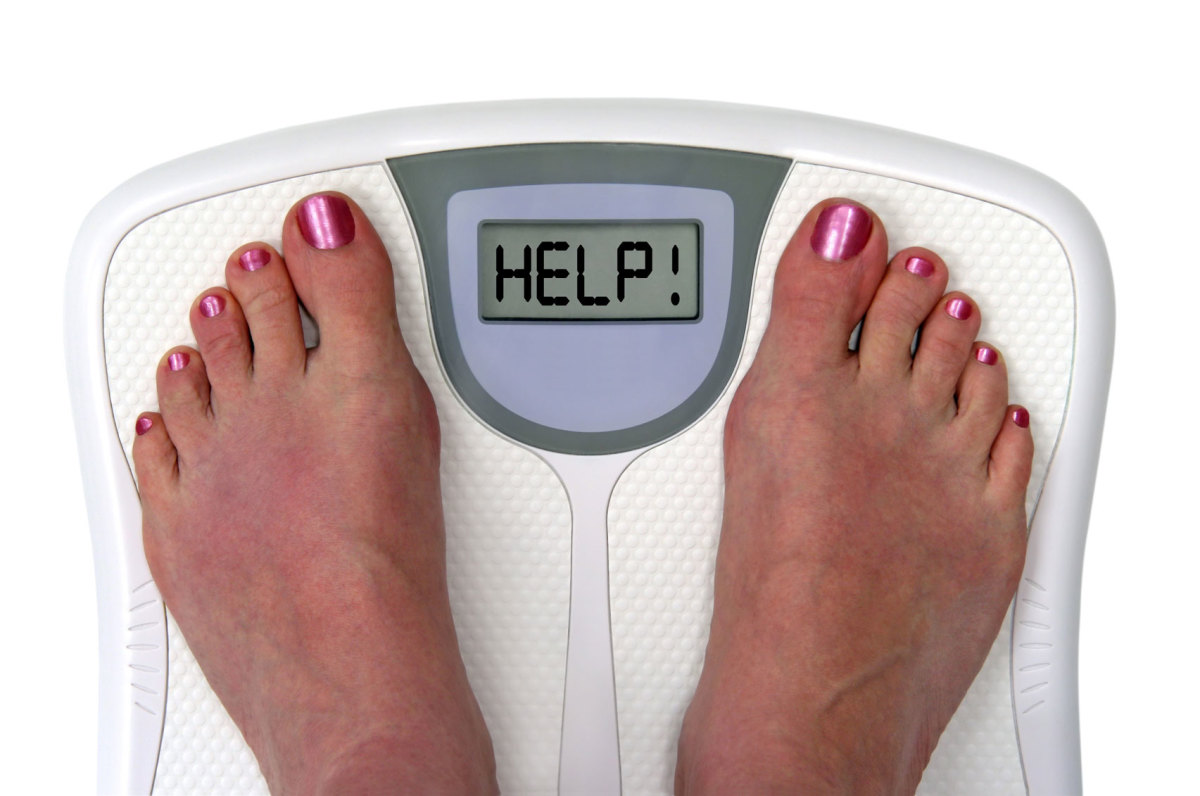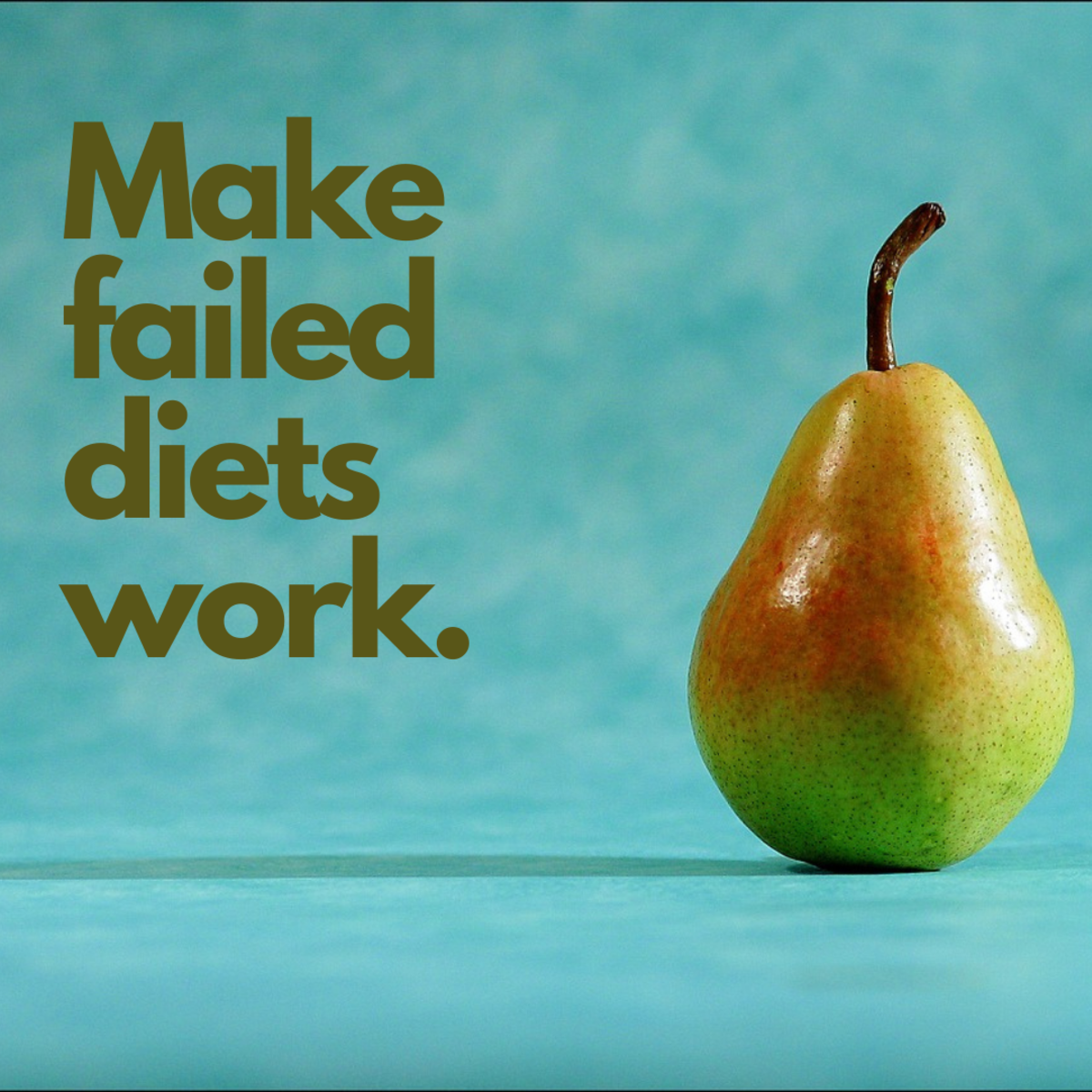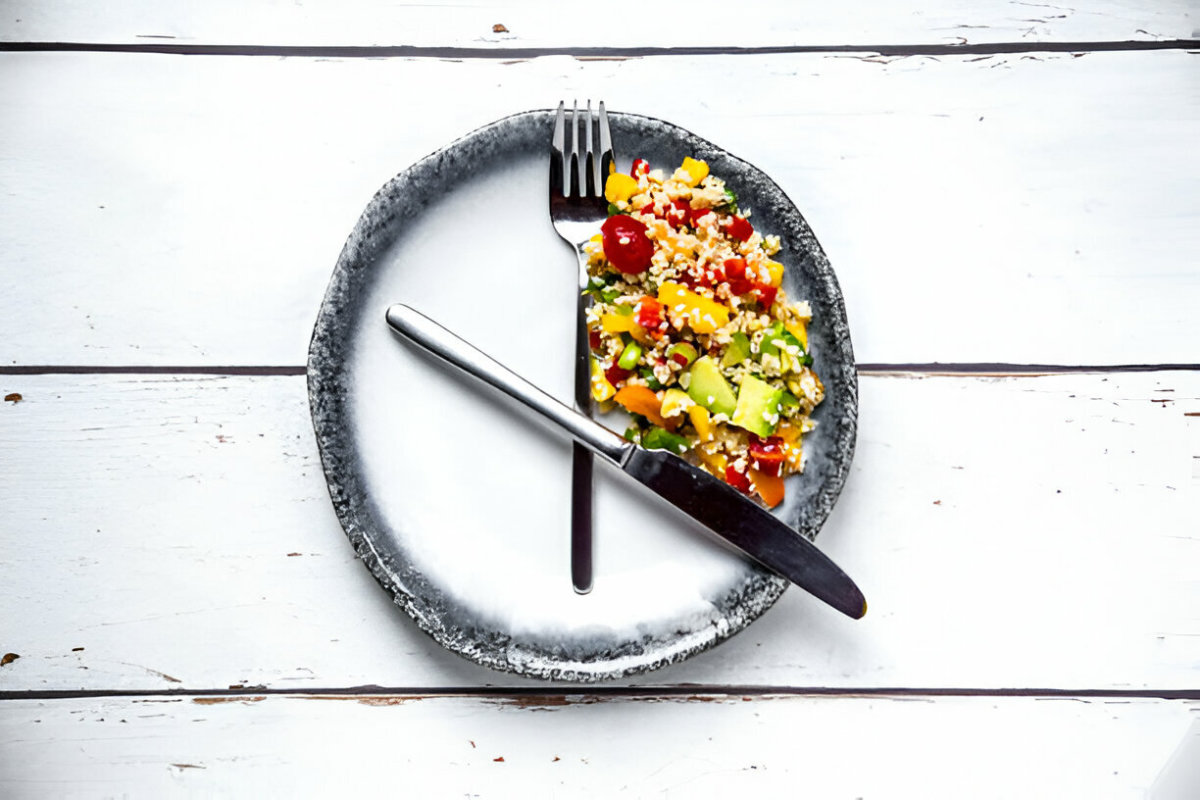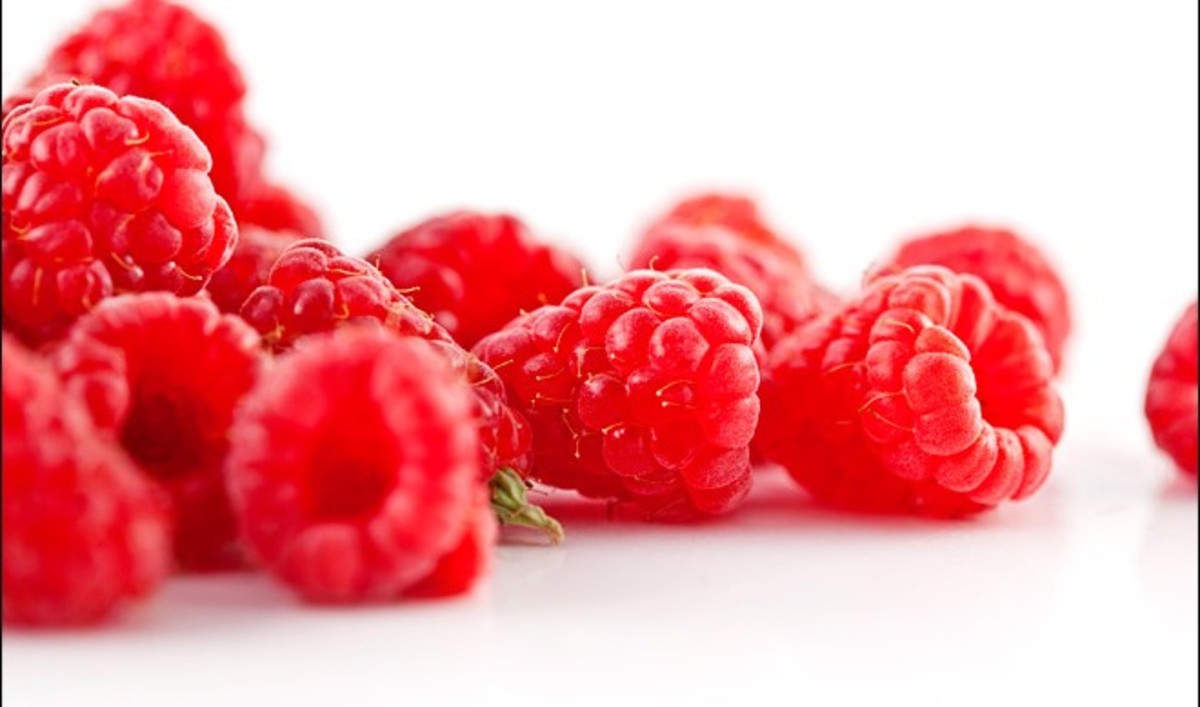Weight Loss Supplement Fads – What Really Works?
One of the biggest topics dealt with in the fitness industry is the issue of weight loss. So many people are overweight these days and they all seem to be looking for a quick fix for fast fat loss.
You can tell that the supplement companies know this with all the new weight loss fads that pop up. But do any of these supplements really work? I’m not satisfied with infomercial claims or what’s written on the label; I’m going to do my own research.
Why Should You Do Your Own Research?
You see, most of the time you’re told an emotional story about someone who took the supplement and saw miraculous results from it. The problem is that all too often the “star” of the story did more than just take this new miracle supplement, if they even took it at all.
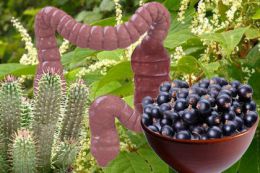
Most of the time they’ll start working out and modify their diet along with taking the supplement. We all know by now that raising your activity level AND modifying your diet is all you need to do to lose weight. You don’t need a supplement to see weight loss results when you do those two things.
But when the supplement company makes their weight loss claims they only seem to give praise to the supplement; ignoring the fact that the person made other lifestyle changes. Most studies require the participants to make such changes while they use the supplement and you’re told to workout and eat better on the supplement label.
That’s besides the fact that the FDA isn’t even required to approve dietary supplements before they’re put on the shelves. They claim that they don’t have the resources or the time to make sure that supplements are safe and effective. They’re leaving it up to the supplement companies in hopes that they’ll conduct legit studies and put out honest claims when they promote their supplements.
This is why I do my own research before I even think about using a supplement and you should too.
What Am I Going to Look Into?
There are 4 big weight loss supplements that I keep hearing about over and over again. I’m not personally considering using any of these methods, diet and exercise are just fine for me, but I’d like to do the research for the knowledge and to help others who are thinking about using these supplements.
Here are the supplements I’m going to look into:
- Acai Berry Supplements
- Colon Cleanse Supplements
- Hoodia Supplements
- Resveratrol Supplements
I’m sure all of you have heard of some, if not all, of these supplements. Since they’re such big fads, I want to see if any of them are actually worth taking. This should be a learning experience for both you and me.
We’ll look at:
- What each supplement is.
- Where the weight loss claims come from.
- A few weight loss studies done to test each supplement.
- A comparison of all the study results for all 4 supplements.
- A conclusion: What actually works?
I’m going to try to find studies that the supplement companies didn’t perform themselves. I also want to find studies that show the participants losing weight WITHOUT having to change their level of activity or diet.
Hopefully by the end of this article we’ll all have a better understanding about these popular weight loss supplements. Let’s get right into it.
What Are Acai Berries?
If you haven’t heard of acai berries before then you’ve been blind to a lot of advertising lately, which is probably a good thing. But since you’re reading this article, I’m sure you’re just as curious about these berries as I am.
Why has this mysterious berry been talked about so much lately? Why is it showing up in so many products? Whoever grows these berries must be making a fortune these days. But here’s the real question: What are acai berries?
For starters, let’s make sure that you’re pronouncing it correctly: it’s ah-sigh-EE. I know that I wasn’t pronouncing it the right way when I first read the word.
Acai berries are small (about an inch in diameter), round fruit that have a very large seed in the center of them. So large that the berry is actually about 80% to 90% seed! That means a very small portion of each berry is actually edible. They are black to purple in color and remind me of blueberries at first glance.
The acai palm tree, which these berries grow on, is native to areas in Central and South America, like Brazil. They grow in very wet areas of land and will produce fruit two times a year. The berries will grow in bunches of, on average, 700 berries.
The berries have a distinct taste that’s said to be a flavor that’s a mix between berries and chocolate. Having tasted them myself, I’d say that it’s a pretty accurate description. They taste really good, which is probably why acai berries make up close to half the diet of populations in the Amazon region of Brazil.
But taste isn’t all they have to offer.
Acai Berry Nutritional Value
When you look at the nutritional value of acai berries, it starts to make a little more sense as to why they’re talked about so much by nutritionists.
The berries are loaded with omega fatty acids, which is a good type of fat that you want in your diet. Omega fatty acids have been shown to benefit us in ways like reducing inflammation and keeping your bones strong.
They’re very high in antioxidants; more than what is in grapes, red wine or blueberries. Antioxidants have been shown to reduce the risk of developing many diseases.
There are good amounts of amino acids, protein and fiber in acai berries too. Protein and amino acids (the building blocks of protein) are needed for many tissues in your body; namely your muscles and organs. And of course I’m sure you realize that fiber’s needed in your diet, unless you enjoy being constipated.
They even contain a good amount of vitamins and minerals like: Vitamin A, B1, B2, B3, C, E, calcium, copper, magnesium, potassium and zinc. Vitamins and minerals are need to help keep your body in balance and working properly.
So they’re a fruit that tastes good and is very nutritious. Hmm, they don’t actually sound all that bad so far, do they?
Let’s move on.
What is Colon Cleansing?
I’m sure at some point in your life that you’ve heard about or read about colon cleansing. It doesn’t sound that appealing does it?
So why do people cleanse their colon? Doesn’t your body already naturally cleanse your colon when “nature calls”? And what’s the actual process of colon cleansing? It’s not exactly a topic you’d bring up at the dinner table, is it? You’ve probably already made up your mind that you’d rather eat acai berries, but let’s get right into it.
When you cleanse your colon, your aim is to clear out toxins and fecal waste from your colon and intestines. Sounds like something you already do on a daily basis, doesn’t it?
There are two ways to cleanse a colon.
You can perform colon hydrotherapy or a colonic, where you use an enema to inject water that’s sometimes mixed with herbs and other liquids. Your body is pumped with many gallons of water, through your rectum, and then you let it flush back out through another tube. You usually have a doctor perform this for you and it sounds a bit gross. This isn’t the method we’re going to be focusing on, because it’s not the latest fad.
People want a quick and easy method for everything and, even when it comes to colon cleansing, they get it! The other way you can cleanse your colon is by using supplements that are mostly taken orally, although some are inserted in the rectum. The supplements usually contain herbs, enzymes or laxatives.
The result from both methods is supposed to be the same: the toxins are cleaned out of your colon. Popping a pill sounds a little more appealing, doesn’t it? The end result isn’t too appealing to me, so why do people do this?
Why Do People Cleanse Their Colon?
Everything we eat and drink passes through our colon. There’s an ancient belief, that’s still believed today, that the food we eat causes a build up of mucus in our colon, which then produces toxins. The toxins are then believed to enter the blood stream and poison our bodies.
It’s what they call “auto-intoxication”. Some believe that the symptoms of auto-intoxication include things like:
- Fatigue
- Headache
- Low Energy
- Weight Gain
With all the different junk foods and other things we put in our bodies, some might quickly believe this theory. This is why people are taking it upon themselves to give their body a hand and clean out their colon themselves.
They aim to clean out all the supposed toxins that are stuck to the walls of their colon. They believe that it’ll help their body function better and that they’ll feel a lot better.
The reason why I, like many others, am not eager to cleanse my colon is because:
- There are already natural bacteria in our colons that detoxify food and drink as it passes through the colon.
- The mucus in your colon keeps toxins from reentering your bloodstream.
- The liver also helps to detoxify your body.
But you do feel pretty bad when you’re not having regular bowel movements, don’t you? Hmm.
I’m not exactly sold on the idea myself, but let’s not get too hung up on this right now. Let’s move on.
What is Hoodia?
I’m sure, if you’ve looked into weight loss supplements at any point recently, that you’ve come across some hoodia supplements.
You might have even thought of taking a hoodia supplement yourself. It has an interesting name and the supplemental claims do seem really appealing, but do you know what you’d be putting in your body if you took it? Personally, I had no clue what hoodia was when I had first heard about it, so I decided to do some research and find out.
Hoodia is a flowering plant that can grow to a little over 3 feet high. It looks a lot like a cactus butit’s NOT; it’s what they call a “succulent” plant. These plants are usually grown in Namibia and South Africa.
Their stems will grow in clumps that look like a tight collection of cacti. After about 5 years, they’ll produce flowers and then they can be harvested. The flowers are usually a light purple to tan color and have a strong scent.
Before you decide to bring your significant other a bouquet of hoodia flowers, you might want to know that they smell like rotten meat. So unless you’re dating a fly, I’d opt for another flower.
There are actually 13 different species of hoodia, but there’s only one type of hoodia that is being used in these supplements. Hoodia gordonii is the only species that has been found to have the desired active ingredient in it.
What Does Hoodia Do?
Besides the claims of appetite suppression, what does hoodia do?
Some have used it for indigestion and treating infections.
There have also been studies that have shown that the active ingredient only found in hoodia gordonii, P57, can reduce the production of gastric acid in your stomach. This could be beneficial for those with ulcers, acid reflux or heartburn.
Is it Really Hoodia?
You want to be sure the supplements you’re looking at actually contain this exact species in its pure form.
It’s been found that a lot of the hoodia supplements out there are fakes or are contaminated. The reason for that is because you need a special certificate to export from Africa and you need a permit to be able to import hoodia into the US. That’s a lot of red tape that some seem to try to step around. You’d think that, while they’re waiting 5 years for the hoodia to flower, they’d be able to get the proper paperwork.
Another reason that your hoodia supplement might not be pure is because hoodia gordonii is an endangered species, hence the need for special permits and certificates. They have to regulate it in some way or the plant might not be around to use. It seems like the popularity of supplements can ruin the availability of plants the same way the radio can ruin good music. Too much of a good thing almost always turns bad.
I’m not quite sold on hoodia being that beneficial to me just yet, but I’ll continue researching before I pass judgment. Let’s move on.
What is Resveratrol?
In the wonderful world of weight loss supplements you come across many different “miracle” pills, but do they really work?
I’ve been doing research on 4 different types of popular weight loss supplements to find out if they’re really worth all the advertising thrown at us. Should you buy into it? Well, maybe… but only after you’ve done some research into the supplement you’re thinking about taking. I assume that you’ve already read the first 4 parts of this series and are ready to find out about the last supplement that I’m researching: resveratrol. When I hear the word resveratrol, I’m already thinking it’s some kind of medicine or supplement name; it just has that medicinal ring to it. But what exactly is resveratrol?
Resveratrol is naturally produced by a variety of plants whenever they have a fungal infection or are under attack from bacteria. They pretty much create their own medicine that is toxic to bacteria and fungi; it’s a natural defense to help certain plants survive. Resveratrol can be found in:
- Red Grapes; only in their skins
- Red Wine; much more resveratrol than in white or rose wines
- Red Grape Juice
- Blueberries
- Cranberries
- Peanuts or peanut butter
- Japanese Knotweed
- White Hellebore
There are two types of resveratrol (trans- and cis-), but trans-resveratrol seems to be what people are supplementing with because humans absorb it well.
But why are people so interested in these supplements?
Resveratrol Benefits
Once you realize what resveratrol does for these plants and you happen to eat fruit and nuts from those plants, you might start to wonder if you can actually benefit in the same way as the plants do.
This seems to be the scientific train of thought because, once they found out that resveratrol was in red wine, scientists wondered if resveratrol could once and for all explain the “French Paradox”. The French eat a lot of saturated foods and smoke a lot of cigarettes but yet have a low death rate from coronary heart disease. Quite the paradox, isn’t it?
What else do the French consume a lot of? Wine! They have the world’s second largest total area reserved for vineyards and are one of the biggest wine producers. So could the resveratrol in the red wine they’re consuming be why they’re not dying from coronary heart disease?
The jury’s still out on that one because the research just doesn’t support it fully. When we consume trans-resveratrol it’s absorbed quickly but very little shows up in our blood stream. It’s been shown to increase the lifespan of fish, fruit flies, worms, yeast and even mice, but has yet to prove the same for humans.
In a test tube it’s been shown to have “heart protecting” effects like anti-inflammatory effects and enhanced production of nitrous oxide. But there’s a problem: that was at very high doses! Like I said before, when we consume resveratrol, very little makes it to our blood stream. So it’s hard to duplicate these results outside of a lab. Scientists just aren’t convinced that they’ve found the key to the French Paradox yet.
In labs, resveratrol has been found to slow the division of human cells caused by certain types of cancer like:
- Breast Cancer
- Colon Cancer
- Pancreas Cancer
- Prostate Cancer
- Stomach Cancer
- Thyroid Cancer
Which is great, but they’re still unsure if they can duplicate these findings in a human body. Going back to French habits; it has not been found to slow the effects of lung cancer caused by cigarette smoking.
It has been shown to slow cancers in animal studies, but we’re still waiting for conclusive evidence that it will be as beneficial for a human to supplement with resveratrol.
So this supplement seems promising at first, by what it does for plants and animals, but we’re just not sure of the benefits for humans yet.
Let’s move onto the next step in my research and find out where the weight loss claims come from for each supplement.
Acai Berry Weight Loss Benefits
Alright, so we’ve already figured out what acai berries are and went over their nutritional value, but we need to dig deeper.
They do seem like a very good option as a food choice, but a lot of people are supplementing with acai berries for different reasons. The obvious reason that we’re going to cover is weight loss.
I was curious as to why the whole acai berry weight loss craze started, so I did a little research.
History of the Acai Berry
There is actually a strange legend about the first usage of acai berries in the Amazon.
It is said that there was a time when the tribes of the Amazon were afraid of famine. So one of the tribal chiefs decided that all newborns would be sacrificed until the famine ended and more food was available. Sounds like harsh times doesn’t it?
Well that chief had a daughter named Iaca and she happened to be pregnant. When she had her baby it was sacrificed and naturally she fell into depression.
One night she heard her child crying in the forest and went out to find her sacrificed baby. She didn’t find her child but she came across an acai berry tree (acai palm). Her tribe found her the next day, dead next to the acai palm tree.
The new food source, acai berries, ended the famine and helped the tribe grow. Some interesting facts… Acia is:
- Iaca spelled backwards
- AKA “the fruit that cries”
So acai berries have been used as a food source for thousands of years, long enough for creative legends to sprout, but it wasn’t until the 1990’s that they were introduced into the “western world”.
Acai berries go bad quickly, because of their high fat content, so unless you live in the Amazon you’re not going to be able to get a hold of fresh acai berries. We have to settle for frozen acai berry pulp or freeze dried acai berry powder.
So now we know the legend behind the berries and the scarcity of their freshness, but where do the weight loss claims stem from?
Acai Berry Weight Loss Claims
It seems to me that most claims stem from the energy boost you can get from eating acai berries. To figure out where the energy comes from you’d have to go back and look at the nutritional value in acai berries.
It’s a very nutritious fruit, but is acai berry’s high nutrient value enough to help boost your fat loss over any other type of healthy food? Personally I think it would be a great addition to your diet but honestly where do these claims of boosted fat loss come from? I REALLY hope it’s not because of their high fiber content.
The claims may have popped up because of their high levels of antioxidants. You see, when you work out (especially endurance workouts) or lose weight you raise the level of free radicals in your body. As rad as they sound, it’s not a good thing! And don’t worry, there are plenty of other things that cause free radicals to form; exercise isn’t a bad thing!
Free radicals are atoms or groups of atoms with unpaired electrons that are formed when oxygen interacts with certain types of molecules. This causes them to be very reactive as they try to re-stabilize themselves and this can cause damage to your cells. Once they’re formed they can cause a chain reaction, and go crazy on your cells!
Your body creates antioxidants to take out the free radicals and stop the chain reaction, but sometimes your body can’t create enough. This is where you supplementing or eating foods rich in antioxidants can be beneficial. By consuming antioxidants, you’re helping your body out which reduces cell damage and helps your body run more efficiently.
So here’s the theoretical process:
- You workout and your body is better at utilizing oxygen and you break down your fat (fat oxidation), which both cause a jump in free radicals.
- Your body creates antioxidants to hold off the damage to your cells, but needs backup.
- You consume acai berry products filled with antioxidants and end the oxidation process.
So, in theory, supplementing with acai berry products while you workout can reduce the stress and cellular damage to your cells. In this sense, can acai berries help boost your weight loss progress? Possibly a little, but acai berries themselves don’t seem to cause weight loss on their own. The antioxidants in them would only help keep your body in balance and running more efficiently, which in turn could mean more weight loss if you’re already working out.
I’ll continue to research acai berries, but let’s move on for now.
Colon Cleanse Weight Loss Benefits
We’ve already gone over two different ways that people cleanse their colon, other than the natural way.
We even went over the reasons why certain people believe colon cleansing is needed and healthy.
But I have noticed that some people see colon cleansing as a way to lose weight; this got me pretty curious.
Why do people think that cleansing their colon will help them lose weight and does it actually work?
History of Colon Cleansing
Believe it or not, the ancient Egyptians may have been the first people to cleanse their colon. The earliest record of colon cleansing comes from a document called “Eber Papyrus” from 1500 BC! They performed colon cleansing to get rid of mucus and treat fevers.
Even the ancient Greeks were into it!
You wouldn’t think a fad like this would have stuck around that long, especially when you read about some of the methods they had to do in those times. You can look into the weird, ancient colon cleansing methods yourself if that interests you.
The colon cleanse craze sprung up once again in the 19th century when studies seemed to support the idea of “auto-intoxication”. It was believed that the toxins in our bodies are what cause diseases and that toxins in our intestines could shorten your life. It was a pretty common treatment for a while. Ask your grandparents if they ever got an enema to treat an illness, you might be surprised with their answer!
Colon cleansing eventually lost its popularity and wasn’t used as much, probably because different options to cure their illnesses became available.
Recently the craze has popped up once again, but this time in the form of supplements! Don’t worry, you can still get some water shot in your “out hole” if you’d like, but supplements are the popular choice now a days.
But it seems like the treatment of illnesses isn’t the only use for the modern colon cleanse. Now some seem to believe that cleansing your colon will also help you lose weight. Sorry, I’m not someone who believes that obesity is a disease (you control what you eat and how active you are), so to me this in a new train of thought. But where do these claims of weight loss come from?
Colon Cleanse Weight Loss Benefits
The weight loss industry is HUGE and supplement companies know that. Whoever started the advertising movement for using colon cleansing as weight loss is actually pretty smart.
You see, colon cleansing didn’t necessarily have to be found to do anything extra special outside of what it already is thought to achieve. Modern colon cleanses arestilldetoxifying your colon. But it’s all in how you advertise it.
A smart advertiser will emotionally sell the benefits of something and support it with logic.
Colon cleansing is used to clear out fecal matter that’s supposedly clinging to your colon. It’s thought to be toxic and once you get rid of it you’ll have detoxified your body. Same old thing, but here’s where the weight loss “magic” comes in; it’s all in the wording.
Weight Loss Potion of Words #1
- This build up can block the absorption of nutrients into your body. So you’re going to feel and perform worse than if you were absorbing all the nutrients from your food. You have less energy so you workout less often and gain weight. (Toying with Emotions)
- Now, cleanse your colon AND continue working out.
- Now you absorb more of the nutrients from the food you eat. You have more energy to workout and start losing weight faster through your fitness program. (Benefits sold to you and supported with logic)
Wizardry! Very clever wording… So you can already see that the colon cleanse itself isn’t what makes you lose weight. But it could help you lose weight more efficiently if you workout.
Would you like another “potion of words”?
Weight Loss Potion of Words #2
- This build up of undigested muck is slowing you down in another weigh, I mean way. Or do I? This toxic muck isn’t weightless. Whatever is clinging to your colon is adding pounds to your body. (Toying with Emotions)
- Now, cleanse your colon.
- Now you weigh less because all of that toxic mess has washed out of you and you didn’t even have to exercise! And guess what else? Your going to have a flatter stomach since all that build up was in that area! (Benefits sold to you and supported with logic)
Don’t make me confiscate your magic wand! So now you can see that any weight lost from the colon cleanseisn’t going to be fat. Don’t let the supplement advertising cast a spell on you!
Let me reveal one last “potion of words” to you.
Weight Loss Potion of Words #3
- The junk food you consume is toxic and is causing a build up in your colon. You need to clean out your colon and start eating healthier if you ever want to lose weight! Start over with a clean slate, I mean colon, and it will be easier for you to lose weight. (Toying with Emotions)
- Now, cleanse your colon AND start eating lots of fruits and vegetables.
- You lost weight from your colon cleanse (see Potion of Words #2 above) and now have a detoxified body! You don’t want to put more toxins in your body and gain weight again do you? Continue to eat healthy and you’ll keep all those toxins from building up in your colon again. (Benefits sold to you and supported with logic)
This is the most brilliantly worded potion of them all because it “tricks” you into eating healthier. And we all should know by now that eating a healthier diet will help you achieve weight loss. Most people will probably just praise the colon cleanse supplement and say it opened their eyes and they’ve been living healthier and thinner ever since.
But can the weight loss really even be attributed to the colon cleanse itself? I’m not too sure that the supplement companies’ “magical” wording works on me. But I WILL continue to do some research on a colon cleanses weight loss capabilities.
Let’s move onto the next supplemental fad.
Hoodia Weight Loss Benefits
Alright, so we’ve gone over the basics of Hoodia.
We’ve figured out what Hoodia is and the specific kind of Hoodia you want in your supplements (Hoodia gordonii).
We also found out about the beneficial active ingredient in Hoodia: P57.
That’s great background information but you’re reading this because you’re interested in its weight loss qualities, right?
So let’s get right into it.
History of Hoodia
The San tribesmen of the Kalahari Desert in South Africa know all about Hoodia. They go on hunts in the desert, which can be pretty long because of the low populations of huntable food. They’re out there all day hunting for something to eat, but they like to carry Hoodia gordonii with them. Why? Because, when they chew on it, they’re not as hungry.
A Dutch anthropologist was studying the San tribes in 1937 and noticed that they used Hoodia in this way. In the early 1960s, the CSIR (Council for Scientific and Industrial Research) in South Africa began studying Hoodia gordonii.
Then in the mid to late 1990s the scientists, working with a British company called Phytopharm, isolated the active ingredient (P57) and patented it. The CSIR then licensed P57 to Phytopharm so that they could do more research on Hoodia.
Millions have been spent on research and it’s attracted some big companies. Pfizer, a pharmaceutical company, became interested in developing a product and partnered up with Phytopharm. It wasn’t long before they backed out and said that another company would be a better fit for the research and product development of Hoodia.
Then Unilever jumped in and wanted to partner up with Phytopharm. They seemed to be making good progress together but mutually agreed to restore all the rights to Phytopharm in late 2008.
Hoodia sounds promising, but has had a rollercoaster-like history. Let’s dive a little deeper into the weight loss benefits of Hoodia.
Hoodia Weight Loss Benefits
It appears that the “magic” behind Hoodia and its active ingredient (P57) is its appetite suppressing qualities.
There is a portion of our brain called the hypothalamus, which controls things like fatigue, temperature, hunger and thirst. When we eat food that contains glucose, the hypothalamus’ nerves are alerted, which sends a signal to your body. This signal is what makes you feel full.
The scientists from Phytopharm believe that P57 is WAY more active than glucose. They believe that the hypothalamus reacts to P57 in the same way as it does to glucose but, because of the higher activity level, it alerts your body that it’s full even when you haven’t eaten! If this is true then Hoodia could be very beneficial for curbing your hunger, which would help you drop weight.
There was a study done on rats, where they injected P57 into their brains, which seemed to support this theory. The rats that were injected with P57 ate less than the rats in the placebo group. But how many of you would line up to get an injection straight into your brain? Not me! So given that this was an animal study and they used injections, you can’t really expect the same effects for humans who are taking Hoodia orally.
So why all the hype? Why are we seeing so many Hoodia products whenever we’re not even sure if it works yet and is safe? Well, you can thank TV for that. It seems that, in 2004, 60 Minutes covered Hoodia in one of their shows. Their correspondent actually went over to Africa and tried some pure Hoodia. Their thoughts? They weren’t hungry or thirsty all day. All you need is a popular TV show to say that it works and the people are going to demand that someone hands them a product!
It seems to me that Phytopharm is the only licensed company actually researching Hoodia right now. So until they conclude that it’s safe, truly works and puts out their own product, I’d be a little cautious with what’s already out there.
Sure, it seems like it will suppress your appetite, but that doesn’t mean you’ll lose weight if you have a bad diet to begin with. You can’t pop a pill and go on eating like you normally do while you laze around the house. Hoodia may spark a change in you, by making you a little less hungry, but it’s up to you to ensure that you’re eating healthy foods and being active. If you eat healthy and exercise while you take Hoodia, then you might reach your weight loss goals at ease, but I don’t think Hoodia will cause you to lose a lot of weight on its own.
A magical pill is what people want, but what our bodies NEED to drop weight requires a little work and discipline. Sorry, I know that’s not what you want to hear! But from what I know at this moment, I’d be careful with Hoodia supplements. The Hoodia pills you’re popping and the frequency you’re taking them may not be even close to Hoodia habits of the San tribesmen.
I’ll continue to research Hoodia, but let’s move on for now.
Resveratrol Weight Loss Benefits
We’ve already gone over what resveratrol is, the type of resveratrol people supplement with and some of the benefits that can be attributed to it.
But, if you’ve made it this far into this article series, it’s obvious what you’re here for: weight loss benefits.
So let’s move onto the fourth supplement I’ve been researching and figure out where the weight loss claims come from.
But first, a little history.
History of Resveratrol
Indians have been seeing the benefits of resveratrol, even as far back as 2,000 years ago. They had an herbal mixture that they called “Darakchasava”, which was used to keep a strong healthy heart among other things. What was the main ingredient in this herbal mixture? Grapes! And we’ve already learned what grape skins contain.
Fast forward to 1940; the first time resveratrol was identified in the roots of a Japanese plant called white hellebore. People would dry these roots out and use them for medicinal treatments for skin problems, like athletes foot.
Later, in 1963, resveratrol popped up again in the roots of a Japanese plant. This time it was found in Japanese knotweed, which was used for things like skin inflammation, fungal infections and liver and heart diseases.
It was also later found to be in the skins and seeds of grapes. But it wasn’t until 1992, when it was found to be in red wine, that the major buzz about resveratrol started. This is when scientists began to theorize that red wine was the key to the “French Paradox”.
Resveratrol has a very interesting yet medicinal past, but where do the claims of weight loss come from?
Resveratrol Weight Loss Benefits
Resveratrol popped into the headlines yet again in 2006, when it was found that overfed mice stopped gaining weight when they were fed resveratrol. It seemed to offset the bad effects of a high fat, high calorie diet as it reduced the fat-related deaths in the mice that were fed resveratrol.
These findings were duplicated in a study done on rats that were fed blueberry extract. The rats that ate the blueberry extract gained up to 10% less bodyweight than the placebo group.
This is great if you’re a mouse or a rat! But I’m sure some people will see this as an excuse to eat whatever they want, while they supplement with resveratrol, and assume they’ll be fine. Ignoring that nonsense, lets get a little scientific.
When you restrict the caloric intake of your diet, this causes a gene called SiRT1 to activate. Once SiRT1 is activated it starts breaking down your fat and using it as energy; this is a survival response to keep us alive.
Resveratrol has been shown to activate this specific gene. The theory is that, once SiRT1 is activated, your body isn’t going to be storing fat, it’s going to be burning it. So you can eat as you normally do and your body will react as if you’re restricting your calories. What’s that mean? You could lose weight without changing your eating habits! That would be VERY beneficial if human studies can prove this to be true.
SiRT1 has also been found to counter the effects of insulin resistance and diabetes in mice. I’m sure that you have already heard of the links between diabetes and obesity.
There have also been claims that resveratrol can help boost your metabolism and help your muscles use oxygen more efficiently. If these claims are found to be true, you would burn more calories throughout the day and your endurance would be improved. Both of which could equal extra weight loss, especially if you workout.
So, if all these claims and theories are found to be true, through studies on humans, resveratrol might actually be pretty beneficial for weight loss.
I’ll continue doing my own research on resveratrol, but let’s move onto the next step in this series of articles. Let’s start looking at what scientific research and specific studies have shown for each of these weight loss supplements.
Acai Berry Weight Loss Research
When reading about acai berries I’m sure you’ve come across the phrase “studies have shown” all too often.
I’m going to try to cut out the middleman, if possible, and actually show you the studies. Supplement companies claim that acai berries can help you lose weight, but is there any proof of this? By proof I mean studies done on humans, which test for weight loss. Let the weight loss study scavenger hunt begin!
After searching around for a while, guess what I found!?
There hasn’t been a single study done on humans to see if acai berries actually do help people lose weight!
It’s pretty surprising, especially with all the acai berry weight loss supplements out there.
Let’s not be a total skeptic though. We’ll give the antioxidant theory, which we talked about in Part 6 of this series, a fair chance.
I was actually able to find two studies, which used human test subjects, dealing with acai berries and antioxidants.
Acai Berry Study #1
The purpose of the first study I came across was to find out if our bodies can actually absorb the antioxidants from acai berries. It might seem like a trivial bit of research, but I guess just you can’t assume that your body will absorb the antioxidants from the berries. So it seems like a very logical place to start researching.
The participants in the clinical trial were given both acai pulp and juice OR applesauce and a drink without antioxidants. I really hope that the control group had never tasted acai berries before because it’s pretty easy to tell the difference in taste between applesauce and acai berry pulp.
The difference was that they used half the concentration of antioxidants (anthocyanins) in the acai pulp and juice than they did in the applesauce and placebo beverage.
The participants then had their blood and urine tested 12 hours after they consumed what they were given. They were also retested again a full 24 hours after consumption.
What were the results?
Our bodies really do absorb the antioxidants contained in acai berry products! At the very least, we can get antioxidant benefits from acai berries.
Let’s move onto the other study.
Acai Berry Study #2
The purpose of this study was to test the antioxidant and anti-inflammatory benefits of a specific acai berry juice: MonaVie Active. The study is a bit more specific, as to what drink the participants consume, but I’m not too sure if we’ll discover anything new from the research. Let’s check it out anyway.
They had pretty strict standards as to who they wanted in the study, here’s what could cause you to be excluded from the study:
- Not in the 18-55 year age range
- Pregnant
- Severely stressed
- Asthma or allergies requiring daily medication
- ANY chronic illness
- Obesity
- If you smoke or use recreational drugs
- Impaired digestive function
- Or if you already drink MonaVie Active or consume a lot of products with antioxidants in them
Alright, I get it; they wanted young and healthy individuals that aren’t already full of antioxidants from what they consume.
Nineteen people were interviewed but only 14 made it through. Seven of those participants were to take part in the pilot study and 12 in the clinical trial. The pilot study was to see which testing method they should use for the clinical trial.
The participants were studied 2 days, which were at least a week apart. They were instructed not to workout, or to eat a heavy meal the night before. More specifically, that meant to avoid meat, fruits or greens and not to consume alcohol, coffee or melatonin. They were also told not to eat anything after they woke up, but they were allowed to drink water as needed.
They would then come in and fill out a questionnaire to ensure that they had actually complied with the guidelines. Then they’d have their blood drawn, drink the juice and have their blood drawn again. Their blood samples were taken at the same time of day for accuracy.
Immediately after they had their blood drawn, they were given 120mL of the juice blend to drink. That’s about half a cup; the most that the manufacturer recommends you consume each day.
At this point you might be wondering what the placebo group got… Well, it was pretty hard to replicate the juice blend so they decided to leave the placebo group in the dark and have them assume that the capsules they were given contained the acai berry product. They got some lovely white potato flakes that were dyed purple, dried, ground up and put inside vegetable based capsules. Mmm!
Each person got to consume the acai berry juice, take a week off and then come back and pop the potato pills. This method seemed to work because there were no signs of a placebo effect.
Back to the study… So an hour after the participants drank their juice or popped their potato pills, they had their blood drawn again. They then had their blood drawn one last time, 2 hours after they had consumed what they were given.
What were the results?
It appears that the antioxidant effects from the drink were better than the placebo group, but not great until 2 hours after consumption. The oxidation levels in 10 out of the 12 participants were lowered 2 hours after they had consumed MonaVie Active.
I think it was smart to have all of the participants take part in both the placebo and the acai juice group. Having set it up this way, they could more clearly see the difference in oxidation when comparing a participant’s blood sample after the juice blend to their blood sample after the placebo pill.
What does that mean?
MonaVie Active is a legit acai berry drink that has beneficial antioxidant properties!
I was a little disappointed that there haven’t been any studies done on humans to prove the weight loss claims. But it does seem like a promising berry if you’re consuming it for antioxidant reasons.
Let’s move on.
Colon Cleanse Weight Loss Research
Now it’s time to see if there is any proof to all the claims of weight loss after a supplemental colon cleanse.
Once again I’m going to try to cut out the “middle man” and show you the studies, instead of just saying “studies have shown”. You see, I don’t work for a supplement company… What does that mean? I’m going to honestly tell you what these supplements can and cannot do for you! I’m not trying to sell you supplements; I’m trying to feed you facts. I hope you’re hungry! With that being said, let’s see if we can find any studies, involving humans, which show that colon cleansing helps you lose weight.
I searched even longer than I had for the acai berries studies and guess what I found?
There hasn’t been a single study done on humans to see if colon cleansing actually does help people lose weight!
Not only that, but there’s been NO scientific proof that colon cleansing detoxifies your body or helps your body run more efficiently.
Imagine that! Another popular supplement with no scientific proof to back its weight loss claims.
But what about the testimonials?
I’m sure a lot of people are sold on the testimonials of people losing weight while they did a colon cleanse.
Let me explain the process to you.
- You take the supplement, which probably contains fiber.
- You’re told to drastically reduce the calories you consume while taking the supplement and to increase your intake of fruits and vegetables.
- You go to the bathroom a lot and feel great after your cleanse.
- You praise the miracle colon cleanse supplement.
I’m sorry, but you fell for the supplement company’s magical potion of words and were scammed.
Take the supplement out of the mix and look at the process with some logic.
You upped your intake of fiber with the supplement and with your increased intake of fruits and vegetables. This is going to cause you to have “regular movements” and keep food from staying in you very long. The food, which would normally be in your stomach, intestines or colon isn’t weightless. So right there you just lost some weight.
You drastically reduced your calories. This right here is how we lose weight to begin with! If you burn more calories than you take in you’ll lose weight. If you drop your daily caloric intake too much, you’ll also lose muscle. So sure, you might have lost some fat, but you also might have lost some muscle. But you’re only paying attention to the overall number, right?
Want to go about it a healthier way? Get a good amount of fruits and vegetables in your diet to ensure you’re getting fiber. You can even supplement with fiber if you want, it’s A LOT cheaper than colon cleanse supplements. And, if you want to lose weight, reduce your calories a little bit to lose weight in a way that can be continued consistently; there’s no need for a temporary fix. Add some exercise into the mix and you’ll lose even more weight, because you’ll be burning more calories!
But what about mucoid plaque?
What about the people holding their brown chains of “colon cleansed” goodies with pride, like a Cracker Jack prize they found in their supplement bottle?
You know what I’m talking about; those pictures of gunk that people passed after taking a colon cleanse supplement. Some people are actually holding it in their hand… that just came out of your butt!
Well you see, the term “mucoid plaque” originated with a guy named Richard Anderson, ND. No, ND doesn’t stand for “Not a Doctor”; it means he has a degree in alternative medicine.
HE sells a supplement called “Arise and Shine”, which is an herbal colon cleanse product. Doesn’t it seem odd that this term and the magical colon cleanse ropes of muck originated from a guy that sells supplements?
The “mucoid plaque” isn’t something that occurs naturally. The only way for you to create your own colon cleanse jump rope is to take a colon cleanse supplement.
Why?
Because most colon cleanse supplements contain a thing called psyllium seed or psyllium seed husk; the same stuff Metamucil contains. If you take psyllium husk, put it in water and let it sit in a cup, guess what happens? It turns into gel! You can slide it out and you’ll have a blob in the shape of your cup.
If you were to mix psyllium husk with some water and then add in some herbs and other things contained in these colon cleanse products… can you imagine what happens?
- It will make it to your colon…
- Turn into gel as it waits for you to go to the bathroom…
- And when you pass it, it comes out in the shape of the insides of your colon!
Tada! Now you have your very own rope of muck to take pictures of and display on the internet.
I’m very disappointed that there were no studies to back the claims of colon cleansing for weight loss or for colon cleansing period. Maybe I’ll make my own mucoid plaque rope to cheer myself up.
Let’s move on.
Hoodia Weight Loss Research
I’m still on the search for promising research for at least one of these popular weight loss supplements.
I don’t want to repeat what you see on Hoodia supplement websites; I want to show you factual studies!
Let the search continue… let’s find some scientific proof that Hoodia actually can help you lose weight.
After searching for a while, guess what I found?
Success! There has actually been a single study done, involving humans, to prove that Hoodia does in fact control your appetite, which can help you lose weight.
Luckily I didn’t have to search as hard because Phytopharm truly is the only company out there researching P57, the active ingredient in Hoodia gordonii, so I went directly to them for the results of the study.
The Study
They recruited 64 healthy, but overweight, males to take part in the study. It was a three part, double-blind, placebo-controlled study.
Part 1
The first part of the study was to check for safety in single dosages of different measurements. This part consisted of 24 participants (4 groups of 6) which were given either a placebo or P57 in doses ranging from 80 mg to 2,400 mg. Part 1 proved that all the dosages were tolerated and that the P57 did make it to their blood stream.
Part 2
The second part of the study was to check for safety in repeated dosages. This part consisted of 18 participants (3 groups of 6) which were given either a placebo or P57 over 5 days. They were given daily, but ascending dosages. Once again, there were no “serious adverse side effects” and the P57 was making it into their blood stream.
The data was collected from the first two parts of the study so that they’d know what dosages to use and how long the final part should be.
Part 3
This part is the actual study to see if P57 (active ingredient in Hoodia gordonii) actually does reduce your appetite and cause you to lose weight. This part consisted of 19 participants (2 groups of 9) which were given (orally) either a placebo or P57, two times a day for 15 straight days.
They tracked their daily caloric intake, body weight, body fat content and drew blood to check for safety.
The Results
The P57 group ate, on average, 1,000 calories less (per day) than the placebo group! The P57 group also had “a statistically significant reduction in body fat content”.
Hoodia gordonii actually can suppress your appetite and help you lose weight!
So far, Hoodia is the only popular weight loss supplement, that I’ve research in this series, which actually looks promising.
But Wait, More Research Needs to Be Done!
That was only one small study, done on a small group of overweight males over a short period of time… more research needs to be done before you start supplementing with it!
Phytopharm is the only company licensed to extract P57 from Hoodia gordonii and they haven’t put out a Hoodia product yet themselves. The study I just talked about took place in 2001 (it’s 2010) that should tell you something!
You’ll just have to wait until they can get more funding, complete the research needed and put out their own product. I wouldn’t trust the Hoodia products that are already out there.
So there’s finally a glimmer of hope in these weight loss fads! But let’s not get too excited before we finish looking at the last supplement.
Resveratrol Weight Loss Research
Now it’s time to do some fact checking on the last popular weight loss supplement in this series: resveratrol.
Is there any truth behind the weight loss claims of resveratrol? Has there even been ANY research done on humans to test the benefits of resveratrol? Let’s find out…
I searched around and found out that there actually has been a lot of different studies involving resveratrol and humans!
So far, we’re already doing better with resveratrol than any of the other weight loss fad supplements; but that’s quantity, not quality of results.
You see, none of the research done was to show that resveratrol causes humans to lose weight.
It doesn’t seem like we’re at that stage yet.
So the only successful weight loss studies you’ll find, when dealing with resveratrol, are animal studies.
Let’s look at some of the studies that have been done on humans anyway.
Resveratrol is Safe for Human Consumption
There was a trial to test the safety of resveratrol at different levels of dosages.
They tested 10 healthy participants with dosages ranging from half a gram to 5 grams.
The highest levels of resveratrol were found in their blood 1 ½ hours after a 5 gram dosage. So it IS absorbed by our bodies!
And there were no “serious adverse events”… so resveratrol is safe to consume, even at a 5 gram dosage!
But don’t get too excited, there’s a slight problem…
It doesn’t stay in our body very long at all. This study showed that 77% of the resveratrol was peed out, 4 hours after the lowest dosage!
Supplementing with Resveratrol May Not Be Efficient
You might not think that that’s a big deal, but most of the research done on cultured cells used resveratrol that wasn’t metabolized, like it is in your body. And that was at concentration levels up to 100 times higher than what’s been found in human blood after oral consumption of resveratrol!
You might be thinking, “But, that was only one study!” as I would be too. The problem is that these findings have been duplicated.
One study showed that 75% of resveratrol is excreted through urine and feces. You might be thinking that 25% left isn’t bad, but they also found that what was left was next to nothing of use because we metabolize it too quickly.
In another study with 6 participants, only traces of unchanged resveratrol were found in their bloodstream after an oral dose of 25 mg of trans-resveratrol.
So we can absorb resveratrol quickly, but it shoots right through us and whatever is left is either metabolized by our bodies into something else or too minuscule to amount to anything.
While I am glad that research is being done on humans, it doesn’t make sense that there are so many resveratrol supplements out there, considering the research. We don’t seem to have figured resveratrol out yet, so why are people supplementing with it?
Ignoring the fact that we metabolize and excrete it too quickly, where are the studies to show that it causes weight loss in humans!?
I’d hold off on your resveratrol supplementation if I were you, especially if you’re taking it for weight loss.
Let’s move on.

Final Comparison: Acai Berry vs Colon Cleanse vs Hoodia vs Resveratrol
It’s the moment we’ve all be waiting for; the final show down between 4 of the most popular weight loss supplements out there today!
A battle of facts against theory and crafty marketing…
Acai Berry vs. Colon Cleanse vs. Hoodia vs. Resveratrol
Who will come out on top?

Battle of Availability
What good is a supplement if you can’t get your hands on it? In this first comparison, we’ll rank these supplements by their availability.
- Resveratrol: Resveratrol is found in a variety of different, yet common, sources. You can supplement with it if you like, but getting a dose of resveratrol is as easy as eating some red grapes, blueberries or even peanut butter.
- Acai Berry: Acai berries are found in so many different products these days. You can opt for acai berry supplements if you like or you can get it in a variety of different products, including smoothies. It’s not that easy to get fresh acai berries though, so it couldn’t be ranked number one.
- Colon Cleanse: Colon cleanse supplements are pretty common, depending on what store you’re in. They are pretty readily available, but they’re not everywhere. They don’t seem to be as hot of an item.
- Hoodia: Hoodia is pretty difficult to import with all the red tape involved. It’s a difficult process to get Hoodia, it’s an endangered species and there are a lot of fake products out there.
Round 2… FIGHT!

Battle of Theory
A lot of the weight loss claims you hear about in advertising are based on theory and incomplete research. These theories are very attractive to people who want to lose weight. So, which supplement has the best theory?
- Resveratrol: In theory, resveratrol will cause your body to think you’ve reduced your calories, even when you haven’t. If this theory can be proven true, in humans supplementing with resveratrol, then you could lose weight without changing your eating habits! It’s also said to help with diabetes and boost your metabolism.
- Hoodia: In theory, Hoodia will trick your body into thinking you’re full, even if you haven’t eaten. If this theory can be proven true, in humans supplementing with Hoodia, then you could control your appetite and lose weight!
- Acai Berry: In theory, acai berries will give you energy and protect your body with its antioxidant capabilities. If this theory can be proven true, in humans supplementing with acai berries, then you’d have more energy, your body would run more efficiently and you’d lose weight easier!
- Colon Cleanse: In theory, colon cleanses will detoxify your body, making it run more efficiently. If this theory can be proven true, in humans using colon cleanse supplements, then your body would absorb more nutrients making it easier for you to lose weight!
Round 3… FIGHT!

Battle of Research
If you were to only pay attention to the first two comparisons,which most supplement companies want you to do, then you’d probably choose resveratrol as your top weight loss supplement.
You need to understand that the media and supplement companies will lie to you!
We need to be smart consumers which means we need to ignore the advertising, ignore their claims and theories and ignore the fact that the products are everywhere!
A smart consumer will look at the research done on the supplements before they even think about using it for weight loss. So let’s look at the facts; which supplement has the best results based on research.
- Hoodia: Hoodia supplements have the most promising results for weight loss, based on research. The research seems to support their theory and it was conducted on humans! But, that was only one study!
- Acai Berry: Acai berries are full of antioxidants which our bodies can absorb. Studies haven’t supported the weight loss theories yet, but this is one step in the right direction.
- Resveratrol: We absorb resveratrol very quickly but it’s metabolized too fast to be of use. A lot of research has been done on resveratrol, but it doesn’t seem like we’ve figured out how to get our bodies to absorb a good amount of the supplement.
- Colon Cleanse: There have been no studies to show the weight loss benefits of colon cleansing. There hasn’t even been any studies that show that colon cleansing will detoxify your body.

So, since I’m sure you want to be a smart consumer, I think you’d agree that the “battle of research” is the only comparison that really matters.
Let’s wrap up this weight loss supplement series…
Acai Berry
My advice to you, if you want to use acai berry supplements for weight loss, is to WAIT!
Yes, the berries are full of antioxidants.
Yes, we can absorb the antioxidants from acai berries.
But there hasn’t been any research to prove its weight loss capabilities, so wait until that research is done.
Otherwise,if you want to consume acai berry products for their antioxidants, go right ahead!
Acai berries can be a very beneficial addition to your daily diet.
There are a lot of legit acai berry products out there.
As you saw above, MonaVie Active has been scientifically proven to be a beneficial acai berry drink, full of antioxidants.
Colon Cleanse
My advice is to AVOID colon cleanse supplements.
Your body already does this for you and there’s no scientific evidence that it’s beneficial for you to do.
And you can’t ignore that there’s been no scientific proof that it will help you lose weight!
The supplement companies’ claims are full of twisted theories and straight up lies.
You already saw above that the “ropes of toxins” the people supposedly passed aren’t what they say they are.
As far as I can tell, colon cleanse supplements truly are the biggest joke out of the four weight loss supplements we went over.
Eat a balanced diet, with an ample amount of fiber in it, and you’ll be just fine!
Hoodia
My advice to you is to, again, WAIT to use Hoodia supplements.
The little research done does look promising but more research needs to be done.
If it proves to be safe and the results of the first study can be duplicated, then this supplement could be very beneficial when it comes to controlling your appetite.
If you can control your appetite, and you lessen your caloric intake, then you’ll lose weight.
But as I said before, Phytopharm is the only company licensed to extract the active ingredient of Hoodia and Hoodia is difficult to import.
So I’m not really sure if any of the Hoodia supplements that are already on the shelves actually contain Hoodia. Some Hoodia supplements have already had to be taken off the shelves because they don’t contain Hoodia!
This supplement does look promising, but for now you must wait until more research is done.
Resveratrol
And finally, can you guess what my advice to you on resveratrol supplements is going to be?
WAIT!
The research done with rodents looks promising but the results haven’t been duplicated with humans yet. As you read in Part 13 of this series, we have a problem with how fast we metabolize resveratrol.
Resveratrol supplements are not effective; we haven’t figured it out yet!
But if you want to eat grapes, blueberries or have a glass of red wine every now and then, go for it!
It may not help you lose weight, but they can be beneficial additions to your diet, in moderation of course.
So I hope that you’ve learned a lot from this series on weight loss supplement fads, I know I did.
And hopefully you’ll be a smarter consumer from now on; popularity doesn’t always equal quality.
As you’ve seen from this series, a lot of the time the most popular supplements are being advertised way before any research is done to support the claims.
Lowering the calories you consume, eating a healthy well balanced diet and staying active has always been proven to help you lose weight.
© 2014 Ben G




